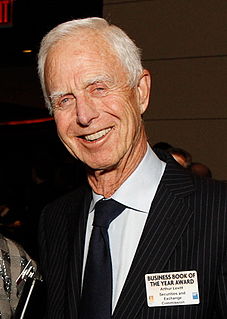A Quote by Richard Branson
To achieve consistently terrific customer service, you must hire wonderful people who believe in your company's goals, habitually do better than the norm and who will love their jobs; make sure that their ideas and opinions are heard and respected; then give them the freedom to help and solve problems for your customers. Rather than providing rules or scripts, you should ask them to treat the customer as they themselves would like to be treated - which is surely the highest standard.
Quote Topics
Achieve
Ask
Believe
Believe In You
Better
Company
Consistently
Customer
Customer Service
Customers
Freedom
Give
Goals
Heard
Help
Highest
Hire
Ideas
Jobs
Like
Love
Make
Must
Norm
Opinions
People
Problems
Providing
Rather
Respected
Rules
Scripts
Service
Should
Solve
Standard
Sure
Surely
Terrific
Than
Them
Themselves
Then
Treat
Treated
Which
Will
Wonderful
Wonderful People
Would
Your
Related Quotes
Often, very talented technical people find it extraordinarily difficult to take the viewpoint of customers, who are often ignorant about the technology and who may have strong and perhaps incorrect prejudices about it. The technical people may believe, deep down, that they know better what customers "should" need. Customers, of course, have a different perspective. They want products that will solve customer problems and provide other customer benefits, and will do so without undue risk or cost. Not infrequently, customers view advanced technology itself as a risk.
When people come to you with problems or challenges, don't automatically solve them. As a mama bear, you want to take care of your cubs, so you tend to be protective and insulate them against all those things. But if you keep solving problems for your people, they don't learn how to actually solve problems for themselves, and it doesn't scale. Make sure that when people come in with challenges and problems, the first thing you're doing is actually putting it back to them and saying: "What do you think we should do about it? How do you think we should approach this?".
With support jobs moving to China and India, it's not surprising that English-speaking countries' top frustration revolves around the difficulty of understanding customer service representatives. However, even if the level of customer service is exceptional, the extent to which poorly-understood accents trump quality of service speaks to English-speaking customers' growing intolerance of non-native speech, more so than in other countries.
Traditional sales and marketing involves increasing market shares, which means selling as much of your product as you can to as many customers as possible. One-to-one marketing involves driving for a share of customer, which means ensuring that each individual customer who buys your product buys more product, buys only your brand, and is happy using your product instead of another to solve his problem. The true, current value of any one customer is a function of the customer's future purchases, across all the product lines, brands, and services offered by you.
Customers are a great way to finance a business for many reasons. First, customer financing is typically non dilutive. They want something from you other than equity in your business. Customers also help you fit your product to the market. And customers will help debug and improve the quality of the product.
Problems are hidden opportunities and constraints can actually boost creativity. If you have some crazy ideas in your mind, and that people tell you that it's impossible to make, well, that's an even better reason to want to do it, because people have a tendency to see the problems rather than the final result, whereas if you start to deal with problems as being your allies rather than your opponents, life will start to dance with you in the most amazing way.































